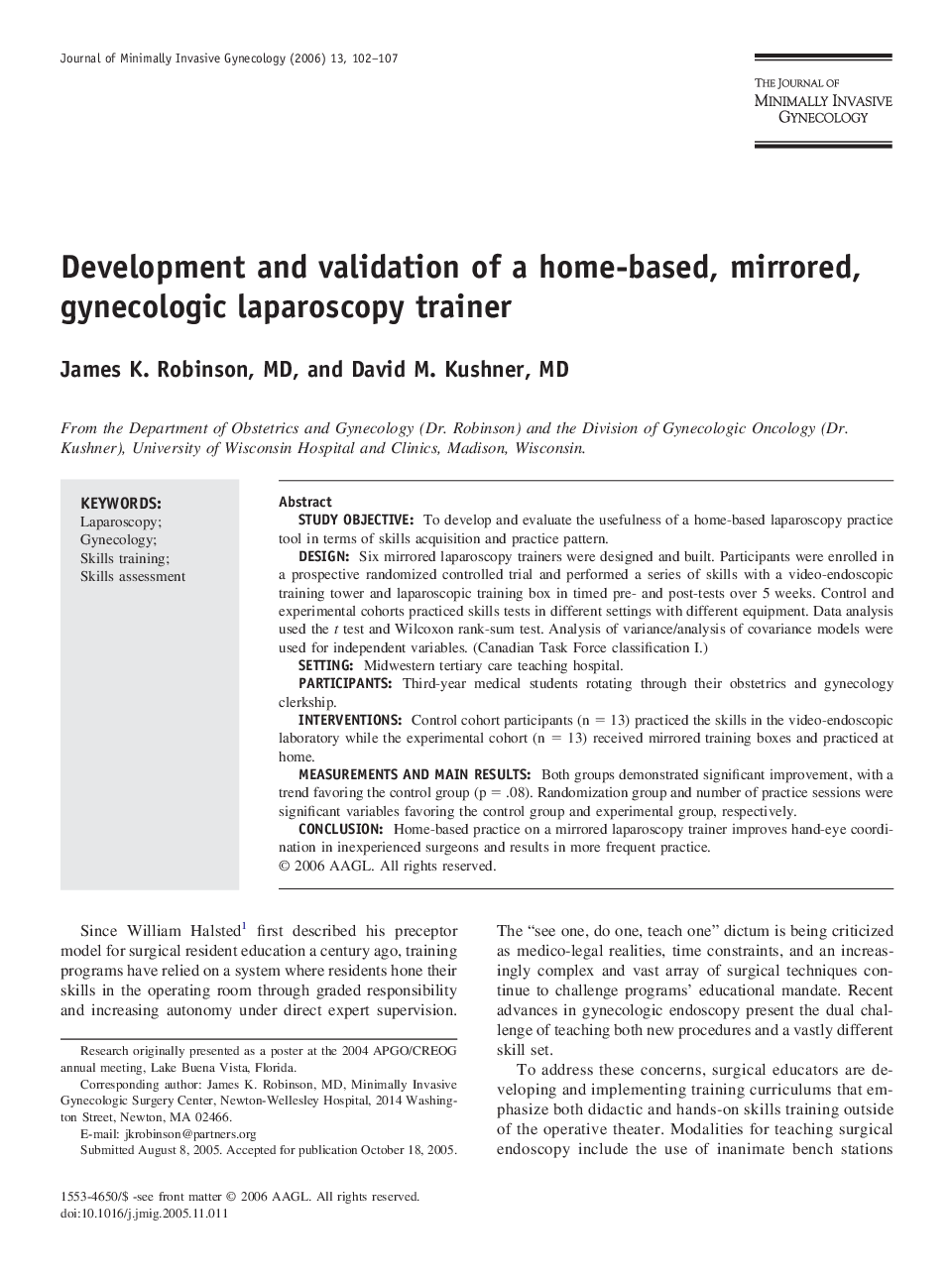| Article ID | Journal | Published Year | Pages | File Type |
|---|---|---|---|---|
| 3955426 | Journal of Minimally Invasive Gynecology | 2006 | 6 Pages |
Study objectiveTo develop and evaluate the usefulness of a home-based laparoscopy practice tool in terms of skills acquisition and practice pattern.DesignSix mirrored laparoscopy trainers were designed and built. Participants were enrolled in a prospective randomized controlled trial and performed a series of skills with a video-endoscopic training tower and laparoscopic training box in timed pre- and post-tests over 5 weeks. Control and experimental cohorts practiced skills tests in different settings with different equipment. Data analysis used the t test and Wilcoxon rank-sum test. Analysis of variance/analysis of covariance models were used for independent variables. (Canadian Task Force classification I.)SettingMidwestern tertiary care teaching hospital.ParticipantsThird-year medical students rotating through their obstetrics and gynecology clerkship.InterventionsControl cohort participants (n = 13) practiced the skills in the video-endoscopic laboratory while the experimental cohort (n = 13) received mirrored training boxes and practiced at home.Measurements and main resultsBoth groups demonstrated significant improvement, with a trend favoring the control group (p = .08). Randomization group and number of practice sessions were significant variables favoring the control group and experimental group, respectively.ConclusionHome-based practice on a mirrored laparoscopy trainer improves hand-eye coordination in inexperienced surgeons and results in more frequent practice.
